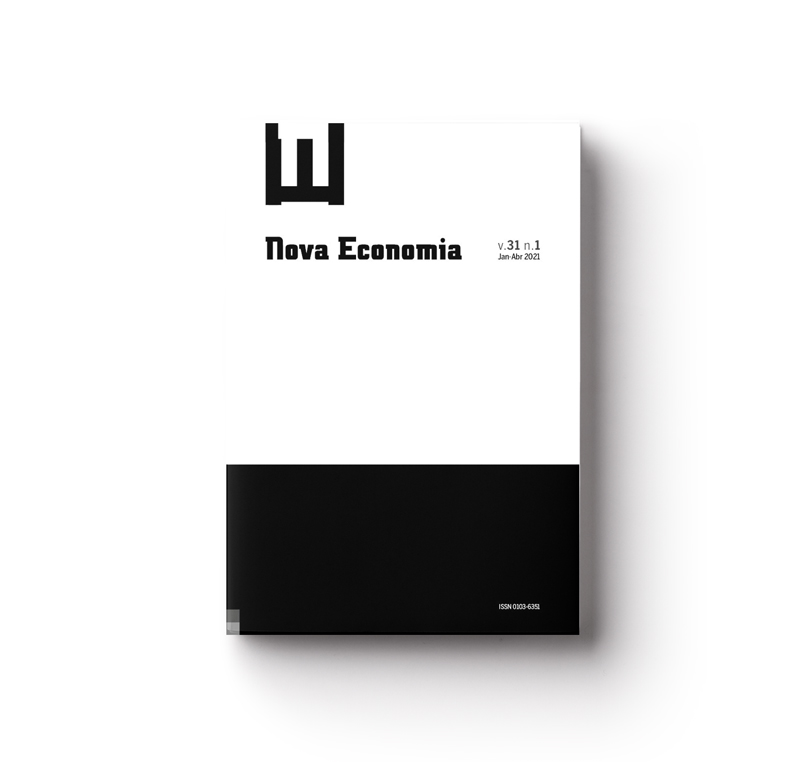Testing for asymmetric adjustment in weekly Brazilian inflation
Abstract
Abstract
This study analyses the nature of weekly inflation response to shocks in the Brazilian economy by adopting a generalized quantile autoregression model in which the autoregressive parameter is allowed to be quantile-dependent. We test for unit root at different conditional quantiles of the response variable, by characterizing its asymmetric dynamics along the business cycle. The method allows us to estimate the magnitude, sign, and the significance of actual shocks that affect Brazilian inflation. We evaluate the robustness of results by adopting a bootstrap procedure. Concerning previous studies, we find evidence of stronger asymmetric persistence in inflationary dynamics in which an inflationary shock below the average dissipates very fast when compared to an inflationary impulse occurring above the average. Location, size, and the sign of a random shock might be essential for inflation adjustment towards long-run equilibrium. The results do not support the full inertia hypothesis.
Keywords: Inflation; Local persistence; Asymmetric dynamics; Quantile Regression; Bootstrap.
JEL Codes: C14; C22; C13.
Downloads
Published
How to Cite
Issue
Section
License
Copyright (c) 2021 André M. Marques

This work is licensed under a Creative Commons Attribution 4.0 International License.
Authors who publish with this journal agree to the following terms:
- Authors retain copyright and grant the journal right of first publication with the work simultaneously licensed under a Creative Commons Attribution 4.0 International License that allows others to share the work with an acknowledgement of the work's authorship and initial publication in this journal.
- Authors are able to enter into separate, additional contractual arrangements for the non-exclusive distribution of the journal's published version of the work (e.g., post it to an institutional repository or publish it in a book), with an acknowledgement of its initial publication in this journal.
- Authors are permitted and encouraged to post their work online (e.g., in institutional repositories or on their website) prior to and during the submission process, as it can lead to productive exchanges, as well as earlier and greater citation of published work (See The Effect of Open Access).




